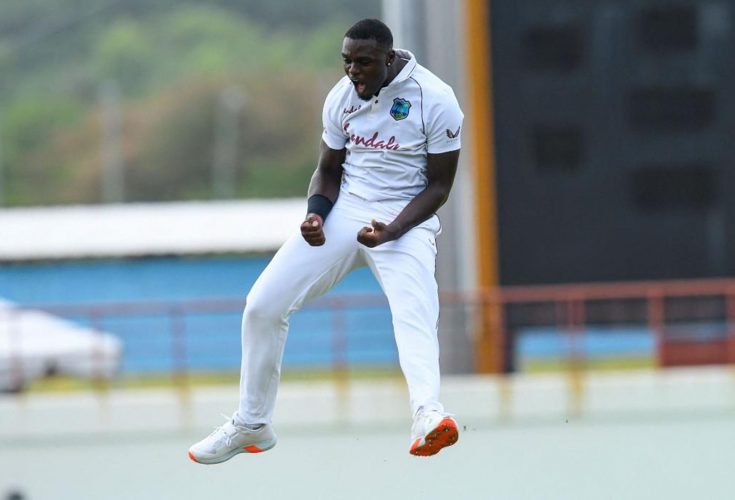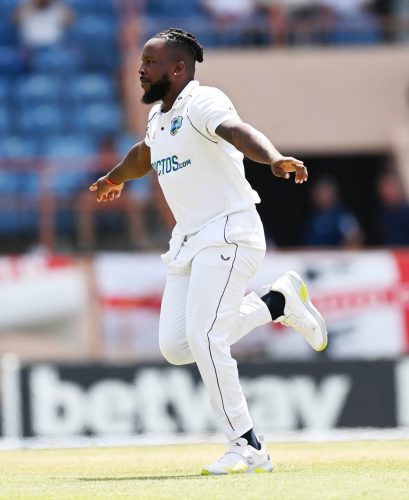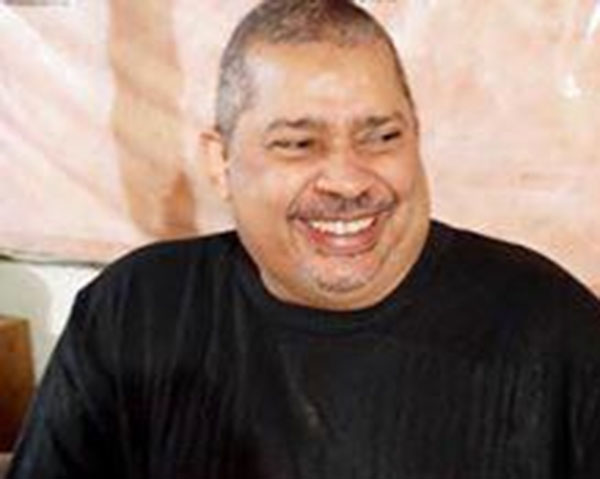By Tony McWatt
What a wonderful weekend this past one has been for West Indies cricket. First, our women’s team secured its qualification for the 2022 World Cup. Then, to compound the enjoyment of that occurrence, the West Indies men’s Test team created history securing a 1-0 Series victory against England and becoming the first-ever holders of the newly minted Richards – Botham Trophy.
The series victory over England will now be joyously celebrated by West Indies cricket fans all over the world, equally and deservedly so by captain Kraigg Brathwaite and his entire team.

Conceivably also even more so by the team’s beleaguered Phil Simmons-led coaching staff, which had borne the brunt of criticisms for the West Indies’ highly unenviable record of results in its most recent Test series. Before the England series, and in the now almost three-and- a-half years since his appointment as West Indies Head Coach, Phil Simmons and his key assistants, the respective batting and bowling coaches Monty Desai and Roddy Estwick, had endured some most unflattering results in all three of international cricket’s current formats. In Tests, considered by most to be the most important of the three formats, the West Indies under Simmons’ charge had won just three, drawn four and lost a whopping nine of its 16 matches played before the recently concluded 1-0 victorious series against England.
Simmons and his coaching cadre have received more than their fair share of the blame for the many failures associated with such dismal previous results. Having done so they must now in all fairness be similarly accredited with at least some of the praise for the many collective and individual performances that led to the West Indies’ most welcome series victory.

Foremost amongst those would be the admirable fighting spirit demonstrated by the team throughout the series. They doggedly fought to secure draws in the first two Tests, the relative positions of superiority for which were more often than not enjoyed by England. They then secured a most admirable victory in the third Test, consistently playing very disciplined cricket in winning arguably nine of its 10 sessions that were held before the eventual result.
England’s first innings last wicket 90-run partnership between its numbers 10, Jack Leach and 11 Saqib Mahmood, which fashioned a recovery from 114/9 to its eventual 204 all out, was the only period of play in almost the entire Test that was not dominated by the West Indies. And, reassuringly not for the first time in recent matches, there were instances of individuals sticking their hands up with outstanding performances at crucial times.
The victorious series-clinching third Test will now be ever fondly remembered by West Indies fans for two such outstanding performances. The first was Joshua DaSilva’s most timely maiden Test century. The second was the equally superlative bowling of Kyle Mayers that produced the incredible figures of 5/19-17 overs in decimating England’s second innings.
Joshua DaSilva’s 355 minutes, 257 balls maiden and undefeated Test century helped the West Indies to recover from its own precarious first innings position of 128/7 to an eventual total of 297 with its associated 93-run lead. It was an innings of admirably stubborn resistance that will now, hopefully, signal DaSilva’s transformation into a reliably consistent lower-order Test batsman.
With a record of having scored two centuries and nine half-centuries in the 58 first-class innings he’s played to date, which have yielded 1628 runs at a fairly respectable average of 32.56, DaSilva should rightfully be regarded far more as a batsman who wicket-keeps than the reverse. What was so very important about his hopefully now transformative innings was the manner in which it was constructed. Characterized as it was by very wise shot selection, coupled by a demonstrated ability to shift gear from defence to aggression, whenever the opportunities for doing so were presented.
Another very heartening aspect of DaSilva’s innings was his successive batting partnerships with Alzarri Joseph, Kemar Roach and Jayden Seales which helped the West Indies to add an eventual match-winning 169 runs from its last three wickets. The 93-run first innings lead that was created then provided the perfect platform for Kyle Mayers to weave his bowling magic.
Omitted from the final playing 11 for the first two Tests, Mayers more than proved his worth in the third. He produced match figures of 7/31 from 27 overs bowled. His victims included England’s captain, best batsman and series twin century-maker, Joe Root, for lowly scores of 0 and 5 in each innings.
Apart from the 3rd Test match-winning heroics of DaSilva and Mayers, there were also very admirable individual performances by other West Indies players throughout the series. Skipper Kraigg Brathwaite led from the front and by example with his series topping aggregate of 341 runs from six innings batted, including one century and 2 fifties for a most enviable whopping 85.25 average.
There were also individual centuries from Nkrumah Bonner (123) and Jermaine Blackwood (102). Bonner, yet again, demonstrated his reliability in the West Indies batting’s top-order with a respectable series average of 44.25. Blackwood’s at 32.00 was, however, far less so and would have been even more abysmal had he been given out as the replays subsequently showed he should have when he’d only scored the very first run of the eventual 102 he compiled in his second Test century.
In terms of the bowling, the youngsters Seales and Joseph, figuring alongside the veteran Kemar Roach as the West Indies’ top wicket-takers in the series, was very encouraging. Roach and Seales both claimed 11 wickets apiece at marginally different averages, 26.27 for the former compared to the latter’s 26.45, to emerge as the two most productive bowlers on either side.
Joseph’s 10 wickets were produced at a much higher 37.30 average. He, however, also had the distinction of being the series fastest bowler by far, regularly producing deliveries at speeds above 140 kph and on at least one occasion even reaching as fast as 150 kph.
There were, therefore, very many positives to be gleaned from the West Indies’ performances with both bat and ball during the series. As to whether those will be deemed sufficient to offset the very negative commentary on the standard of West Indies umpiring that was made throughout the series is, however, highly debatable.
In three matches, all of which were officiated by the West Indies’ supposedly very best umpires, Joel Wilson, Gregory Brathwaite and the Test debutant Nigel Duguid, there were no less than 20 decisions that were subsequently overturned following reviews. There were also at least another two additional decisions that were not reviewed, but which were shown by TV replays as errors to England’s detriment and at crucial points of the series.
The first was the previously mentioned decision involving Blackwood during the 2nd Test. The second was an equally important lbw decision in favour of Seales during the West Indies third Test first innings.
Poor umpiring aside, the series result will now rightfully be viewed by all West Indies cricket fans as a step in the right direction. There’s undoubtedly now still a long way to go, but with a visit by Bangladesh scheduled as the West Indies’ next Test series encounter, it’s a very encouraging foundation for even further fortunes restoration progress in the immediate future.
In the interim West Indies fans will look forward to the Women’s World Cup semi-final against Australia with high hopes for a similarly favourable outcome.
About the writer:
Guyana-born, Toronto-based, Tony McWatt is the publisher of both the WI Wickets and Wickets monthly online cricket magazines that are respectively targeted towards Caribbean and Canadian readers. He is also the only son of the former Guyana and West Indies wicket-keeper batsman the late Clifford “Baby Boy” McWatt.





